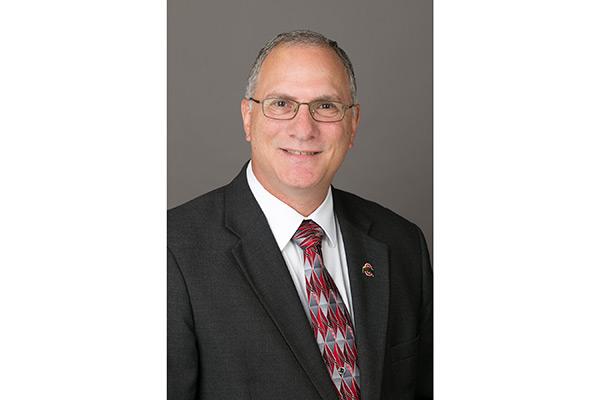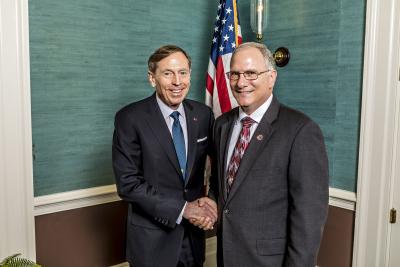Ohio Veterans History Project features interview with Mansoor

Poke around on the website for Ohio History Connection, and you are likely to run across their digital collections including Ohio Memory, a collaborative statewide digital library with content from over 360 cultural heritage institutions representing all 88 Ohio counties.
Within this online library is the Ohio Veterans Oral History Project, an initiative to collect and preserve the stories of Ohio’s veterans. So far the project features videos with about 30 Ohio veterans including an interview with Mershon’s Peter Mansoor, Gen. Raymond E. Mason Jr. Chair in Military History.
Mansoor’s interview is a prime example of oral history, which features a person describing his or her own experiences. It is considered a primary historical source, preserving the past and connecting history with the present by documenting life as it unfolds.
In a video lasting almost six hours, Mansoor describes his life growing up in California; attending college at West Point; marriage and family; station stops at Fort Bliss, Fort Hood, and Fort Irwin; deployments to Germany; command experiences in Iraq; serving at the Council of Foreign Relations, Counterinsurgency Center at Fort Leavenworth, and Council of Colonels at the Pentagon; and as executive officer for Gen. David Petraeus during the surge in Iraq.
Throughout, Mansoor reflects on lessons during military training exercises, live combat, and at the front seat of history in Iraq after the United States had deposed Saddam Hussein, facing a growing insurgency, and taking the first tenuous steps toward democracy.
In one moving passage, described in his book Baghdad at Sunrise (Yale, 2009), Mansoor recounts the death of Sgt. Maj. Eric Cooke, the highest-ranking enlisted soldier in the brigade, killed by a roadside bomb on Christmas Eve 2003. Mansoor recounts how the death hit the unit hard and how he was personally affected.

Mansoor doesn’t hold back on evaluations of the main characters in his story. He characterizes Paul Bremer, administrator of the Coalition Provisional Authority, as out of touch with events on the ground, failing to understand the importance of building relationships with key Iraqi constituencies. Harry Reid, Senate majority leader, said publicly that the surge had failed before it had even been fully implemented. Ambassador Christopher Hill wanted to normalize the embassy in the midst of war and supported Nouri al-Maliki for prime minister even though he jailed his political enemies, fracturing democracy in Iraq and leading ultimately to the rise of ISIS.
Another theme of the interview is the changing nature of warfare. In the 1990s, the military was planning for smaller, lighter mobile forces backed by high-tech precision aircraft, missiles and artillery. Major combat operations were still thought possible, with peace-keeping and disaster response mixed in. Training was done on a quasi-Cold War model.
Then 9/11 happened, and Mansoor found himself having to clear out an insurgency by a militia beholden to the fiery cleric Muqtada al-Sadr in the south central Iraqi city of Karbala. Thanks to solid training, Mansoor’s brigade did it without damaging two of the most sacred shrines in Shi’ite Islam. Mansoor also used principles of counterinsurgency by developing relationships with local interest groups, including tribal leaders, and engaging local Iraqis to find out thoughts of everyday people on the ground.
The Ohio Veterans Oral History Project is co-sponsored by the National Veterans Memorial and Museum, a new memorial and museum under construction in Columbus to honor veterans’ contributions to our free and safe society, and Honor Flight Columbus, which flies senior veterans to Washington, D.C., to visit war memorials at no cost to them.
All veterans from any branch of service are eligible to participate in the Ohio Veterans Oral History Project. The only criteria is that the veteran has some connection with Ohio.
